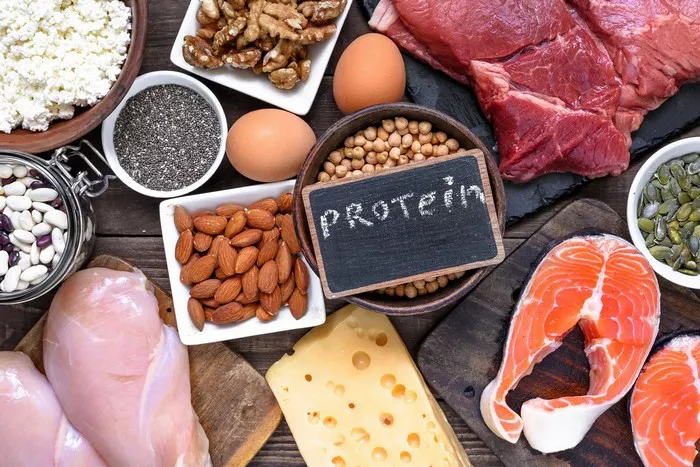Protein is a critical macronutrient essential for the growth, repair, and maintenance of tissues in the human body. For grown men, determining the right amount of protein intake can be pivotal for health, muscle development, and overall well-being. This article will delve into the recommended protein intake for grown men, the factors influencing these recommendations, and the benefits and potential risks associated with protein consumption.
Understanding Protein and Its Importance
Protein is made up of amino acids, which are the building blocks of muscle, skin, enzymes, and hormones. It plays a crucial role in various bodily functions, including:
Muscle Repair and Growth: After exercise or injury, protein helps in the repair and growth of muscle tissues.
Enzyme Function: Proteins act as enzymes, catalyzing biochemical reactions in the body.
Hormonal Balance: Certain hormones, like insulin, are proteins that help regulate bodily functions.
Immune Function: Proteins are essential for the production of antibodies that fight infections.
Energy Source: While carbohydrates and fats are primary energy sources, protein can also provide energy, especially during prolonged physical activity or calorie restriction.
Recommended Daily Allowance (RDA) for Protein
The Recommended Daily Allowance (RDA) for protein intake varies based on age, sex, and physical activity level. For an average grown man, the RDA is typically 0.8 grams of protein per kilogram of body weight. This translates to about 56 grams of protein per day for a sedentary man weighing 70 kilograms (154 pounds).
Factors Influencing Protein Needs
Several factors can influence how much protein a grown man should consume:
1. Age
As men age, their protein needs may change. Older adults often require more protein to help maintain muscle mass and strength, reduce the risk of sarcopenia (age-related muscle loss), and support overall health. Studies suggest that older adults may benefit from consuming 1.0 to 1.2 grams of protein per kilogram of body weight.
2. Physical Activity Level
Men who are physically active, especially those engaged in strength training or endurance sports, have higher protein requirements. For athletes and bodybuilders, protein intake can range from 1.2 to 2.0 grams per kilogram of body weight. This increased intake helps support muscle repair, growth, and recovery.
3. Health Status
Certain health conditions, such as chronic illnesses, injuries, or surgeries, can increase protein needs. Men with conditions like cancer, chronic kidney disease, or those recovering from surgery may need additional protein to support healing and recovery.
4. Body Composition Goals
Men aiming to lose weight, gain muscle, or maintain a lean physique may adjust their protein intake accordingly. Higher protein diets can help preserve muscle mass during weight loss, increase satiety, and promote a leaner body composition.
See Also: Is There Any Fruit with Protein?
Sources of Protein
Protein can be obtained from a variety of dietary sources, including animal and plant-based foods. Each source has its own set of benefits and considerations:
1. Animal-Based Proteins
Meat: Beef, pork, and lamb are rich sources of complete proteins, containing all essential amino acids.
Poultry: Chicken and turkey provide high-quality protein with relatively lower fat content compared to red meat.
Fish and Seafood: Fish like salmon, tuna, and cod are excellent sources of protein and healthy omega-3 fatty acids.
Dairy: Milk, cheese, yogurt, and other dairy products offer high-quality protein along with calcium and vitamin D.
Eggs: Eggs are one of the best sources of complete protein, providing all essential amino acids in a highly bioavailable form.
2. Plant-Based Proteins
Legumes: Beans, lentils, and chickpeas are rich in protein, fiber, and other essential nutrients.
Nuts and Seeds: Almonds, walnuts, chia seeds, and flaxseeds provide protein, healthy fats, and micronutrients.
Whole Grains: Quinoa, brown rice, and oats contain protein along with complex carbohydrates and fiber.
Vegetables: Certain vegetables like spinach, broccoli, and Brussels sprouts contribute to overall protein intake.
Soy Products: Tofu, tempeh, and edamame are excellent plant-based protein sources, especially for vegetarians and vegans.
Balancing Protein Intake
To optimize health and performance, it is essential to balance protein intake with other macronutrients (carbohydrates and fats) and micronutrients (vitamins and minerals). A varied and balanced diet ensures adequate nutrient intake and supports overall health.
1. Protein Timing and Distribution
Distributing protein intake evenly throughout the day can enhance muscle protein synthesis and support muscle repair and growth. Consuming 20-30 grams of protein per meal, including snacks, can help achieve this balance.
2. Post-Workout Protein
Consuming protein after exercise can aid in muscle recovery and growth. A post-workout meal or snack containing protein and carbohydrates can replenish glycogen stores and support muscle repair.
3. Protein Supplements
Protein supplements, such as whey, casein, and plant-based protein powders, can be convenient options to meet protein needs, especially for those with higher requirements or limited access to whole food sources. However, it is essential to choose high-quality supplements and avoid relying solely on them for protein intake.
Potential Risks of Excessive Protein Intake
While protein is essential for health, excessive intake can lead to potential risks:
1. Kidney Health
High protein intake can put a strain on the kidneys, especially in individuals with pre-existing kidney conditions. It is essential to monitor kidney function and consult a healthcare professional if consuming a high-protein diet.
2. Bone Health
Some studies suggest that excessive protein intake, particularly from animal sources, may lead to calcium loss and negatively impact bone health. Balancing protein intake with adequate calcium and vitamin D is crucial for bone health.
3. Digestive Issues
Consuming excessive protein, especially from supplements, can lead to digestive issues such as bloating, gas, and constipation. It is important to ensure adequate fiber intake and stay hydrated to support digestive health.
4. Nutrient Imbalances
Focusing too heavily on protein intake can lead to imbalances in other essential nutrients. A varied diet that includes a range of macronutrients and micronutrients is essential for overall health.
Conclusion
Determining the right amount of protein for a grown man involves considering factors such as age, physical activity level, health status, and body composition goals. While the general recommendation is 0.8 grams of protein per kilogram of body weight, individual needs may vary. It is essential to obtain protein from a variety of sources, balance protein intake with other nutrients, and be mindful of potential risks associated with excessive protein consumption. Consulting with a healthcare professional or a registered dietitian can help tailor protein intake to individual needs and support overall health and well-being.
[inline_related_posts title=”You Might Be Interested In” title_align=”left” style=”list” number=”6″ align=”none” ids=”10862,10761,10707″ by=”categories” orderby=”rand” order=”DESC” hide_thumb=”no” thumb_right=”no” views=”no” date=”yes” grid_columns=”2″ post_type=”” tax=””]



































